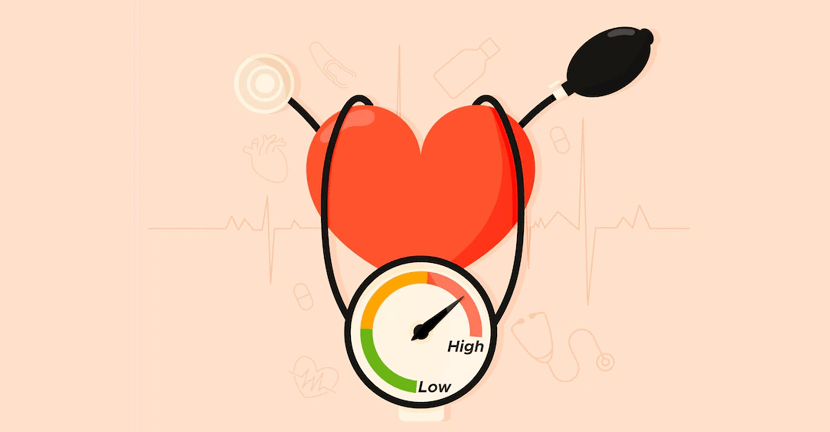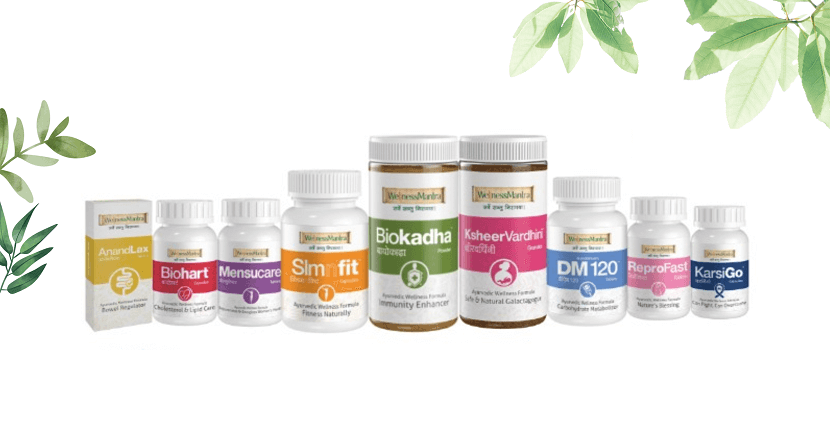
High blood pressure or hypertension is a primary risk factor that is the root cause of different cardiovascular diseases, including heart attack, heart failure, stroke, etc. Hence, managing blood pressure is very important for reducing the risk of dangerous health conditions.
What Are the Factors of High Blood Pressure (Hypertension)?
Following are some conditions that may lead to the condition of high blood pressure:
- Family history of having high blood pressure, diabetes, or any cardiovascular disease
- Obesity
- Intake of foods high in sodium (salt) excessively
- Addiction to tobacco or the habit of smoking
- Alcoholism
- Sedentary lifestyle and lack of physical movement
So how does one know if their blood pressure falls under the normal range or not? Well, here’s your answer!
Range of Blood Pressure:

- Normal Blood Pressure: Systolic is below 120 mm Hg and Diastolic below 80 mm Hg.
- Pre-Hypertension: Systolic is between 120-139 mm Hg while Diastolic is between 80-89 mm Hg.
- Stage-1 Hypertension: Systolic is between 140-159 mm Hg and Diastolic is between 90-99 mm Hg.
- Stage-2 Hypertension: Systolic values 160 mm Hg or higher and Diastolic values 100 mm Hg or higher.
- Hypertensive Crisis (Medical Emergency): Systolic Blood pressure is above180 mmHg and Diastolic is above 100 mm Hg.
Also Read: Diabetes According to Ayurveda
Description of Hypertension in Ayurveda:
In Ayurveda, Hypertension can be compared to something called the Raktagata Vata, wherein the aggravated Vata gets lodged in the circulating blood (Rakta Dhatu) and causes disturbance in its circulation. Raktagata Vata is a type of blood disorder caused by Vata and Pitta.
When the Avalambaka Kapha increases, blockage occurs in the arteries and arterioles which leads to peripheral resistance and atherosclerosis, which further causes cardiac disorders.
Causes of Hypertension as per Ayurveda:

Several factors contribute to hypertension as per Ayurveda, they are given below:
- Lavan upyog (excess intake of salt)
- Krodha, Shok, Bhaya (Mental stress)
- Shrama (Physical Strain)
- Ritu Sandhi (Variations in Season)
- Madhyapana (excess alcohol intake)
- Madhur, Ati Snigdha & Divaswapan (Sedentary Lifestyle)
Conclusion:

- Avoid Smoking: Excess use of tobacco or smoking is the most significant risk factor for developing heart disease and it may be responsible for developing atherosclerosis as well.
- Regular Health Screening: Regular health check-ups or screening ensured by parameters such as measuring blood pressure, blood tests for LFT( Liver Function Test), KFT (Kidney Function Test), blood sugar, and lipid profile should be monitored regularly.
- Be Physically Active: Walking, yoga and exercises like jogging can help in normal blood circulation, helps in controlling healthy weight, and hence reduces the chance of developing hypertension.
- Lower Sodium Intake: Excess sodium increases blood pressure by causing the body to retain excess fluid which puts a burden on the heart as well as on blood vessels. Hence lower sodium intake to manage blood pressure.
- Have healthy food and avoid binge eating.
- Follow a seasonal regime and adopt food habits and lifestyle activities accordingly.
- Drink an adequate amount of water at regular intervals and seasonal fresh fruit juices. Include more greens in the diet as well as carrots, flaxseeds, tomatoes, drumsticks, pomegranates, sesame, wheat bran and ginger, beetroot, red cabbage, watermelon, and apple.
- Avoid sour, spicy, salty food on a daily basis like papad, garam masala, chillies, pickles, sausages, bread, and refined flour (maida) products.
Along with the ayurvedic treatment of Hypertension, a person needs to take care of several things pertaining to their lifestyle such as:
At Wellness Mantra, we develop supplements catering to your health in the long term. Every Wellness Mantra product is not just a testament to our commitment to societal well-being but also a tribute to the ancient science of Ayurveda.
We have encompassed the benefits of Ayurveda for; Diabetes Management, Cardiac Care, Cancer Care, Obesity Management, Female Fertility & Wellness, Lactation Care, Immunity Enhancement and Laxative Care.
And we look forward to broadening our horizons for the betterment of our society and humanity at large, in the times to come.



